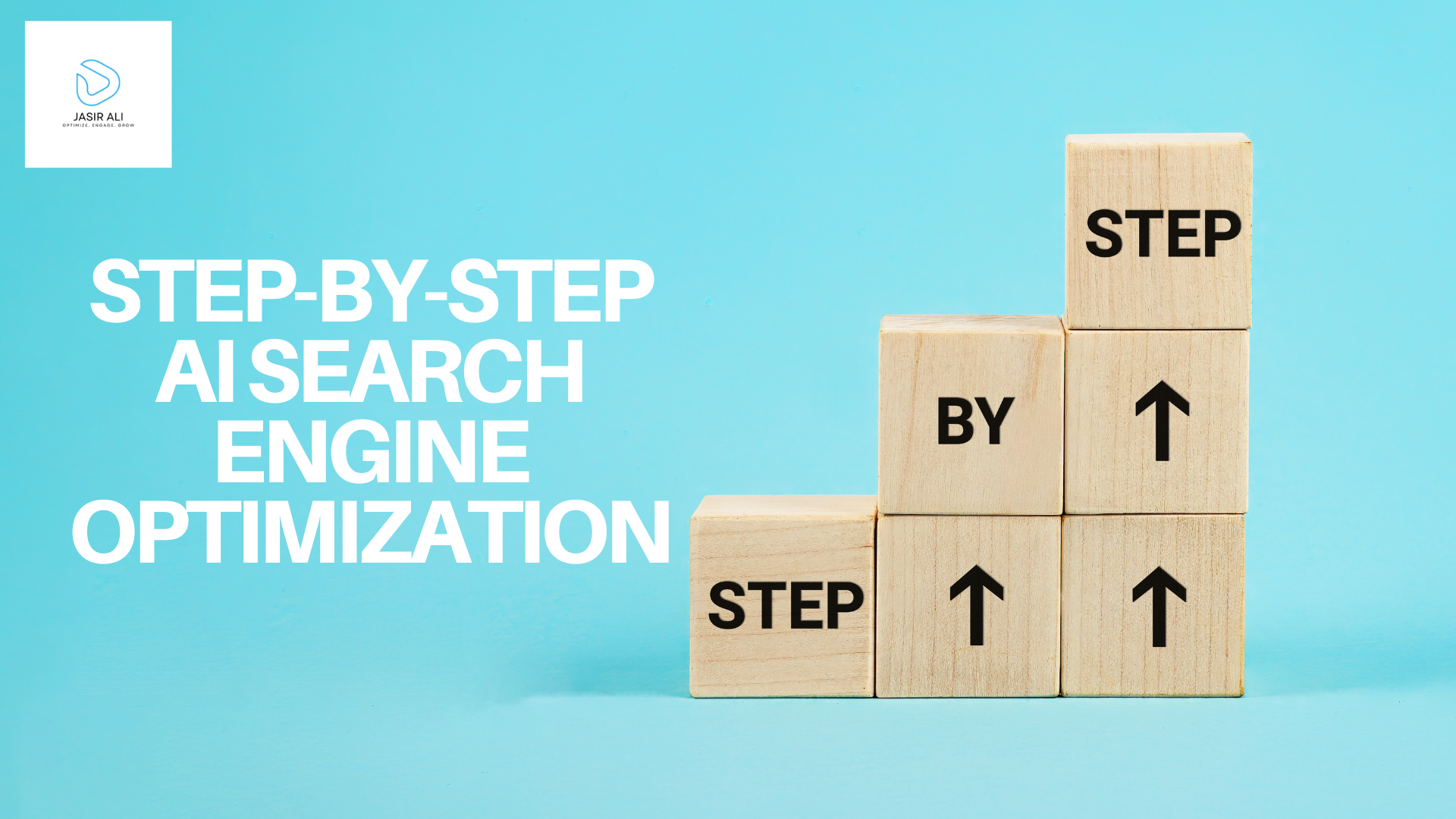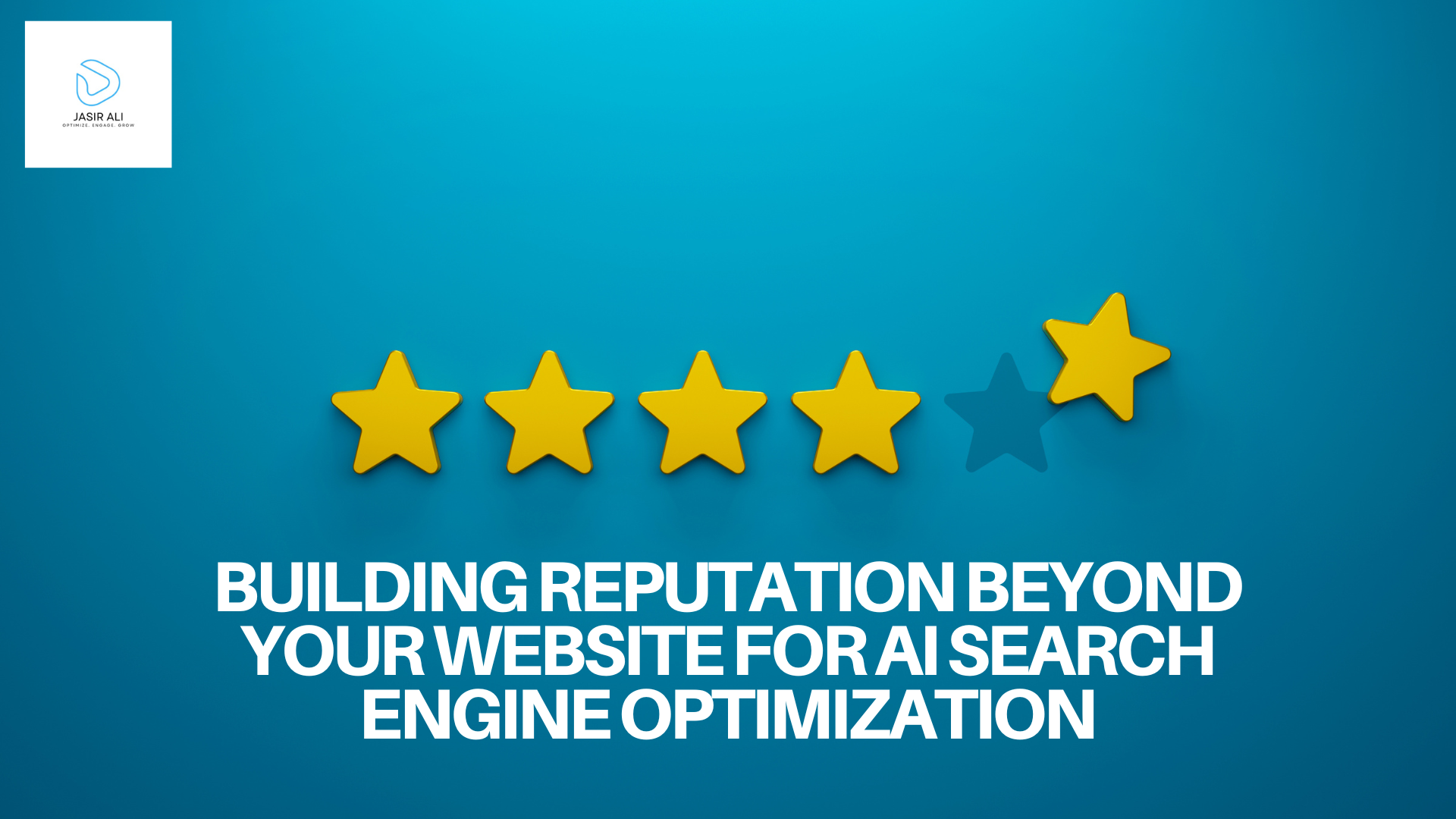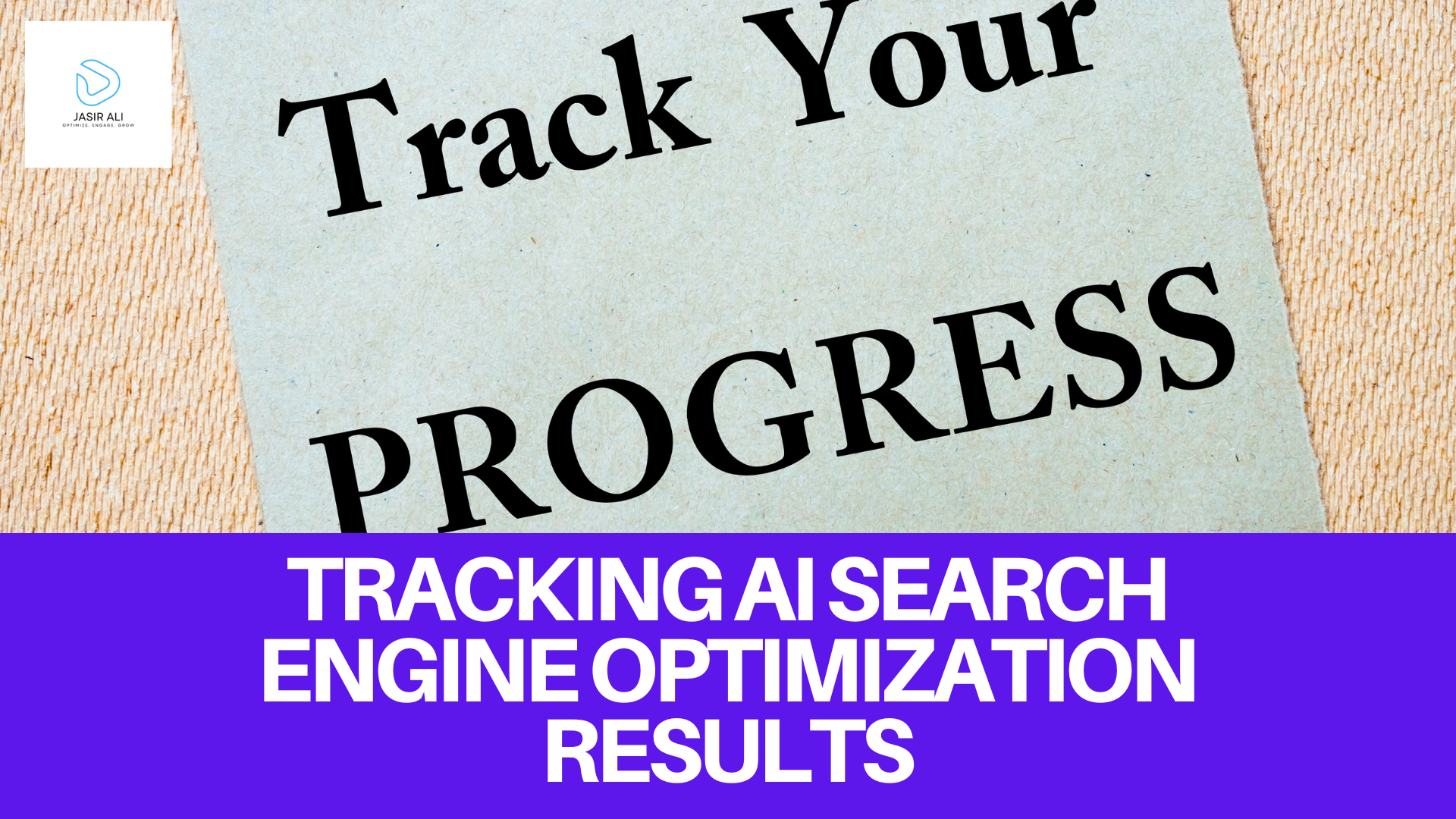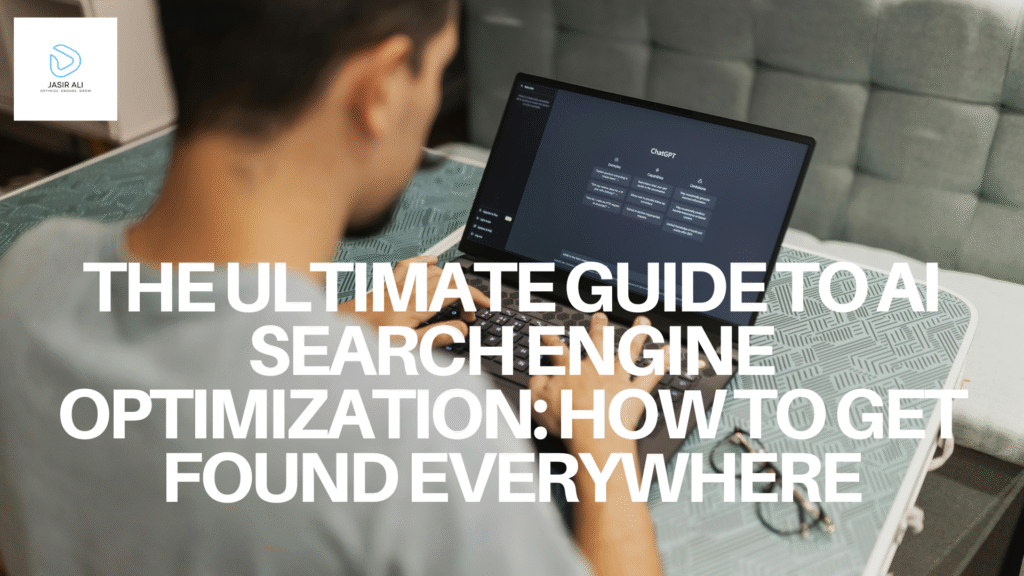Introduction
Have you noticed that more and more people are getting instant, reliable answers from AI platforms like ChatGPT, Gemini, Perplexity, and Copilot? These powerful tools are transforming the way we explore the internet, delivering concise, accurate information within seconds. At the heart of this revolution is AI search engine optimisation—the process of strategically shaping your content so it stands out and gets selected by these advanced AI-driven answer engines.
The age of scrolling endlessly through countless search results is fading. Today, thanks to AI search engine optimisation, not only can your content appear at the very top, but it can also become the trusted answer that AI platforms pull directly into their results. No longer is it just about “ranking on page one of Google”. Now, being featured in AI summaries and recommendations is the new gold standard for expanding your reach, earning trust, and building a reputation as a true authority.
But what exactly does it take to achieve this level of visibility? How can you ensure that your website, blog, or brand is the one chosen by AI when someone asks a question relevant to your field? The rules of digital marketing are changing fast, and AI search engine optimization is the key to staying ahead.
This guide will take you step-by-step through the essentials of AI search engine optimisation, breaking down complex strategies into simple, actionable steps anyone can follow. Whether you’re a business owner looking to attract clients, a content creator aiming for a wider audience, a social media expert chasing the next big wave, or simply someone who wants to future-proof their online presence, adopting AI search engine optimization is your best move.
Ready to make your content the preferred choice of tomorrow’s search engines? Let’s dive into the world of AI search engine optimization and unlock new possibilities for growth, credibility, and success—no matter what your goals are.
Why AI Search Engine Optimization Platforms Matter

AI search engine optimization changes how people discover content and trust information. Instead of scrolling through endless links, platforms like ChatGPT and Perplexity provide direct answers. This means your AI search engine optimization strategy determines whether your brand is visible or hidden.
-
Higher trust: AI search engine optimization makes you the recommended expert.
-
More reach: AI search engine optimization isn’t limited to Google—AI tools integrate answers from websites, videos, and social communities.
-
Competitive edge: If your AI search engine optimization gets you featured, competitors are less likely to appear.
-
Multi-channel strength: AI search engine optimization ensures content appears across platforms, not just your website.
How AI Search Engine Optimization Platforms Choose Content
Before improving your AI search engine optimisation, understand how platforms pick answers:
-
Focus on real, helpful knowledge: AI search engine optimization succeeds when your content offers direct answers to common questions.
-
Clear structure: AI search engine optimization uses headers, bullet lists, tables, and FAQs—making your blog easy for AI to scan.
-
Trusted sources: Good reviews, citations, and active community engagement boost your AI search engine optimization authority.
-
Multi-source citation: AI search engine optimization spreads your brand’s visibility across websites, videos, forums, and news.
-
Content freshness: AI search engine optimisation prioritises recently updated answers.
-
User engagement: Comments, shares, and likes can increase your AI search engine optimization ranking.
Step-by-Step AI Search Engine Optimization

Writing For AI Search Engine Optimization (and Humans!)
Tip 1: Base your AI search engine optimization on frequently asked questions in your field.
Tip 2: Use plain language; avoid jargon except for technical audiences.
Tip 3: Place your AI search engine optimization keyword and main answer near the top of each post.
Tip 4: Update older content to maintain relevance for AI search engine optimization.
Structure Content For AI Search Engine Optimization
Tip 5: Break content into logical H2 and H3 headings that feature “AI search engine optimisation”.
Tip 6: Use bullet lists, tables, and FAQ blocks to clarify AI search engine optimization strategies.
Tip 7: Short paragraphs support AI search engine optimization by making answers easy to extract.
Tip 8: Add calls to action—invite readers to get advice about AI search engine optimization.
Stay Up-To-Date and Trustworthy
Tip 9: Author bios improve AI search engine optimization by showing your credentials and experience.
Tip 10: Cite sources to strengthen your AI search engine optimization authority.
Tip 11: Reply to comments and refresh FAQs. This shows commitment to AI search engine optimization and audience engagement.
Website Optimization for AI Search Engine Optimization
-
Schema markup: Using FAQ, HowTo, Article, and Product schema is crucial for AI search engine optimization.
-
Crawlability: Don’t block AI bots. AI search engine optimization must include GPTBot, PerplexityBot, and more in your robots.txt settings.
-
Speed: Fast websites greatly boost AI search engine optimization.
-
Mobile: AI search engine optimization depends on mobile-friendly design since most users browse with their phones.
-
HTTPS: secure sites rank higher in AI search engine optimization.
-
Navigation & linking: Menus and internal links help AI search engine optimization by guiding bots to your best pages.
-
Accessibility: Alt text and readable fonts ensure all users benefit and support your AI search engine optimization efforts.
Building Reputation Beyond Your Website for AI Search Engine Optimization

-
Q&A platforms: Answer questions on Quora, StackOverflow, and Reddit. Link to your resources and highlight “AI search engine optimisation”.
-
Social media presence: Post regularly with “AI search engine optimisation” in your profile and content.
-
Mentions and collaborations: guest post or be interviewed by trusted blogs and podcasts. Use “AI search engine optimisation” in all cross-channel content.
-
Directories and business listings: Claim profiles on Google My Business, Yelp, and local listings, mentioning “AI search engine optimisation”.
-
Reviews and testimonials: Encourage feedback referencing your expertise in AI search engine optimization.
Practical AI Search Engine Optimization Tactics Across Platforms
-
Blogs and guides: Use “AI search engine optimisation” in blog posts, how-to articles, and FAQs.
-
Videos: Caption and describe your content for “AI search engine optimisation” visibility.
-
Social media: Consistently include “AI search engine optimisation” in bios and content.
-
Podcasts: File summaries and transcripts should mention “AI search engine optimisation”.
Real Examples: AI Search Engine Optimization Success
Local SEO Consultant: Priya’s AI search engine optimization includes detailed answers and keyworded blog posts, getting her featured for Kerala SEO advice.
Wellness Blogger: Amit uses “AI search engine optimisation” in his recipes, guides, and Instagram Reels, resulting in multiple AI engine citations.
Tracking AI Search Engine Optimization Results

-
Monitor which content with “AI search engine optimisation” drives new traffic sources.
-
Watch for mentions: “I found your AI search engine optimization tips in Perplexity!”
-
Use Google Search Console or Bing Webmaster Tools to measure “AI search engine optimisation” snippet impressions.
-
Employ social listening for user references and feedback.
FAQ: AI Search Engine Optimization Challenges
Problem: “My content doesn’t show in ChatGPT or Perplexity.”
Solution: Revise key pages to start with “AI search engine optimisation” and answer questions clearly. Use FAQ schema.
Problem: “Site isn’t getting crawled.”
Solution: Update robots.txt and confirm all major AI bots can access your site for AI search engine optimization.
Problem: “No mentions/backlinks.”
Solution: Increase forum and guest post activity about “AI search engine optimisation”, encourage user reviews.
Problem: “AI gave a wrong answer.”
Solution: Publish more with “AI search engine optimisation” across platforms to push correct info to the top.
Problem: “What questions do people ask?”
Solution: Use tools like AnswerThePublic, focusing on “AI search engine optimisation” related queries.
Problem: “Can I pay to be included in AI answers?”
Solution: No; only relevant, trustworthy content about “AI search engine optimisation” is featured.
Key Takeaways and Final Thoughts

-
AI search engine optimisation should be woven through every page, section, and content update to boost your discoverability across chatbots, answer engines, and traditional search results.
-
Useful, structured content wins for AI search engine optimisation. Break guides into clear sections, use headings, lists, tables, and FAQs to help AI platforms “read” your message.
-
Technical basics truly matter for AI search engine optimisation: Site speed, schema markup (FAQ, HowTo, Article), mobile-friendliness, and robust accessibility are all non-negotiable for better rankings.
-
Stay active and visible: Consistently participate in blogs, Q&A sites, social media profiles, and directories. Make “AI search engine optimisation” a core part of your online reputation—engage communities, respond to questions, and share fresh insights.
-
Blend human experience with smart AI strategies: The most powerful AI search engine optimisation comes from combining original stories, expertise, and data with advanced SEO and content tools. Use AI tools for keyword research, topic ideas, and optimization—but always add authentic human perspective.
-
Smarter SEO means semantic optimisation: Go beyond just repeating “AI search engine optimisation”—incorporate related terms, questions, and subtopics for broader coverage and authority in your niche.
-
Track and adapt: Use AI-driven analytics tools to monitor how your “AI search engine optimisation” actually performs. Evaluate where you’re cited, featured, and driving traffic—then adjust your strategies to grow your reach and results.
-
Plan for hybrid visibility: Optimise your content for both classic search and AI engines. Direct answers, concise summaries, and descriptive headings help you rank in Google’s snippets and in platforms like ChatGPT and Perplexity at the same time.
-
Embrace ongoing learning: AI search engine optimisation is dynamic—stay sharp by tracking new trends, algorithm changes, and emerging tools in the SEO landscape.
-
There are no shortcuts: Lasting success in AI search engine optimisation demands dedication: real engagement, regular updates, authentic storytelling, and commitment to user experience.
Conclusion
AI search engine optimization is fundamentally changing the landscape of content discovery, brand visibility, and online authority. As more users turn to platforms like ChatGPT, Gemini, Perplexity, and Copilot for fast, reliable answers, mastering AI search engine optimization is critical for anyone hoping to stay competitive.
By filling your blog and external content with “AI search engine optimisation”—and by structuring every piece to be useful, clear, and accessible—you ensure that advanced AI engines will see, trust, and feature your expertise. From writing strategies to website setup and active community participation, every element matters.
Make “AI search engine optimisation” your top priority, and you’ll be better prepared for every shift in search technology, every new audience, and every AI-powered future that comes next.
If you need more help with AI search engine optimisation, don’t hesitate to get in touch—let’s grow your visibility together!
